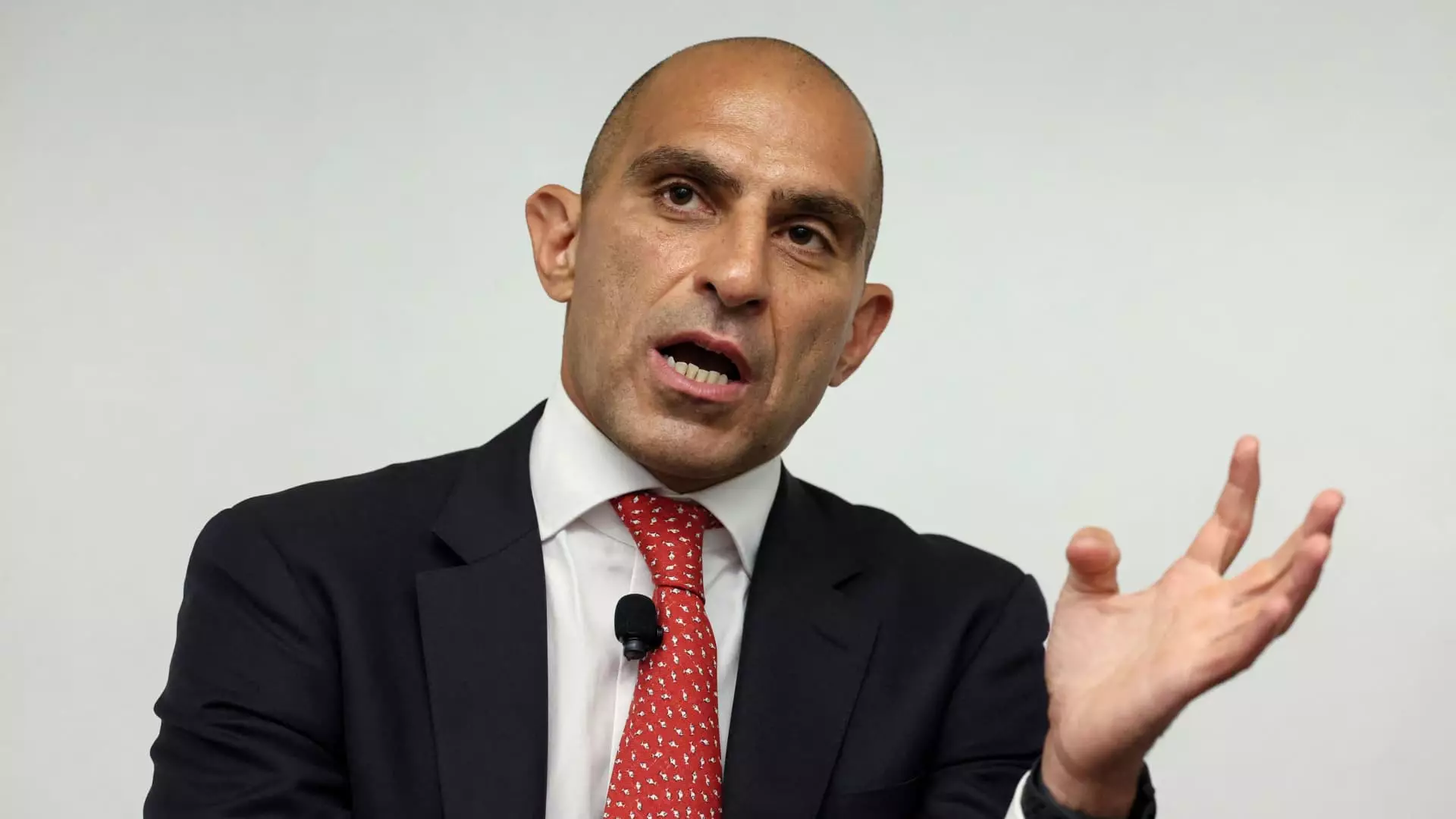The Commodity Futures Trading Commission (CFTC) is currently navigating some tumultuous waters, particularly in its legal battle against Kalshi, a financial exchange that has sparked controversy by offering contracts allowing betting on U.S. election outcomes. On a recent Wednesday, CFTC Chairman Rostin Behnam addressed this critical issue while speaking at the DC Fintech Week in Washington, D.C. His statements reflect a significant concern not only regarding the legality of these contracts but also the integrity of financial markets amidst changing regulatory landscapes.
The CFTC’s staunch position is that betting on political election outcomes is illegal, yet the recent court ruling that favored Kalshi has complicated matters. The appeals court’s decision to lift the injunction that temporarily restrained Kalshi from operating its contracts is a pivotal moment for the commission. Behnam indicated that, despite the ongoing legal challenges, the agency has had a consistent stance on event contracts concerning elections. However, he acknowledged a pragmatic approach by stating that the commission would allow such contracts to exist while seeking to uphold market integrity – an aspect that might lead to a paradox in regulatory effectiveness.
Aside from the immediate legal challenges surrounding election contracts, the CFTC is also facing the complex issue of rapidly evolving digital assets. The explosion of the digital asset market has not been matched by appropriate regulatory measures, leaving everyday investors vulnerable to scams and fraud. Behnam’s remarks emphasize the pressing need for Congress to act and establish a clear regulatory framework for digital currencies and other emerging financial technologies.
The urgency of this situation cannot be overstated. During his testimony before the U.S. Senate Committee on Agriculture, Nutrition and Forestry, Behnam expressed deep concern about the impact of digital asset scams on the American public. His assertion that “federal legislation is urgently needed” highlights the gap that currently exists in consumer protection laws. Without a coherent regulatory response, both individual investors and the broader financial system remain at risk of significant vulnerabilities.
As the CFTC grapples with these multifaceted challenges, the agency faces an uphill battle to adapt to an ever-changing financial landscape. The intersection of technological innovation and regulatory oversight requires a delicate balance. On one hand, there is a pressing need to protect investors and maintain market integrity. On the other hand, there is a recognition that overly stringent regulations could stifle innovation in financial services.
Moving forward, the CFTC will need to sharpen its focus on collaboration with Congress and other stakeholders. By advocating for comprehensive regulatory reforms, the commission can help establish a proactive framework that supports innovation while safeguarding investors. As the landscape of financial regulations continues to evolve, the CFTC’s ability to navigate these complexities will be crucial in shaping a resilient and secure marketplace for the future.
The CFTC stands at a crossroads, where legal challenges and evolving digital assets converge. How the agency responds in these defining moments will ultimately have far-reaching implications for both market integrity and investor protection.

